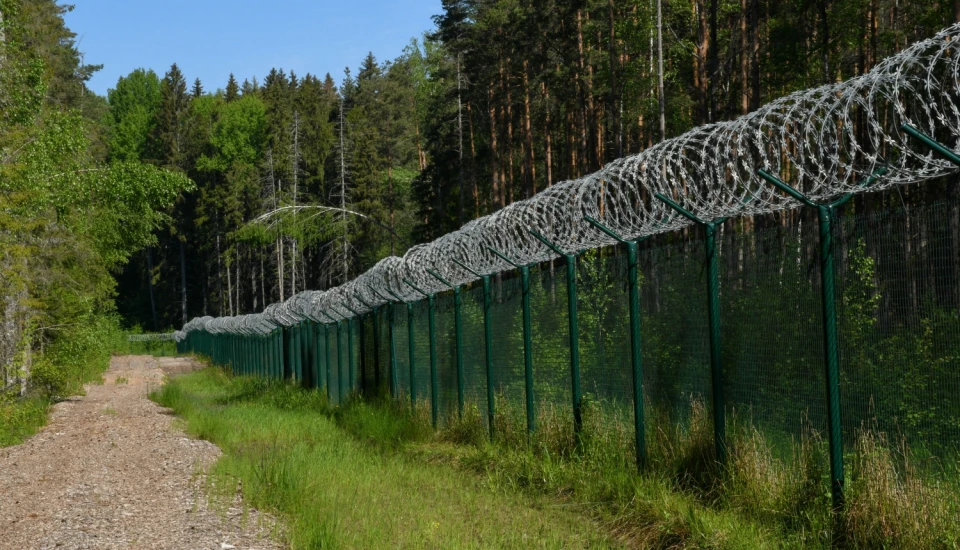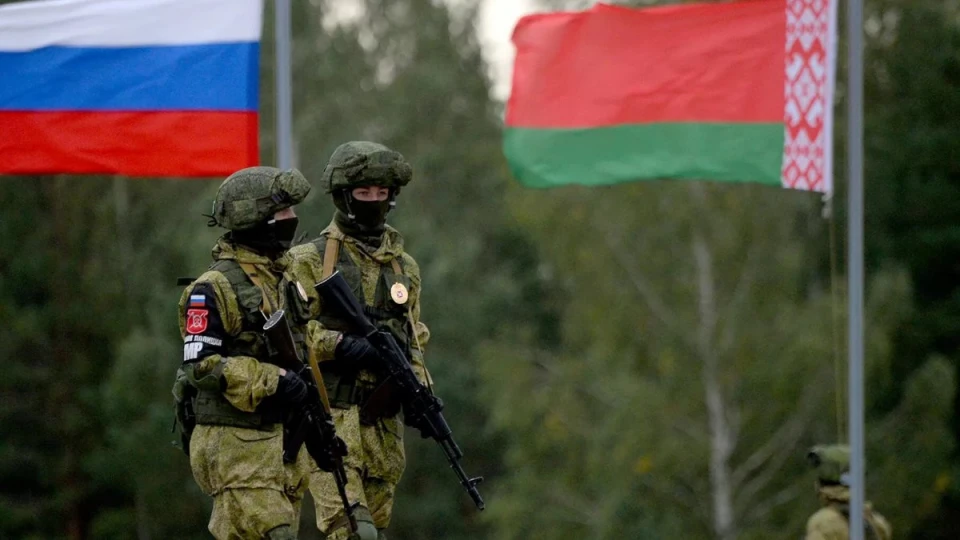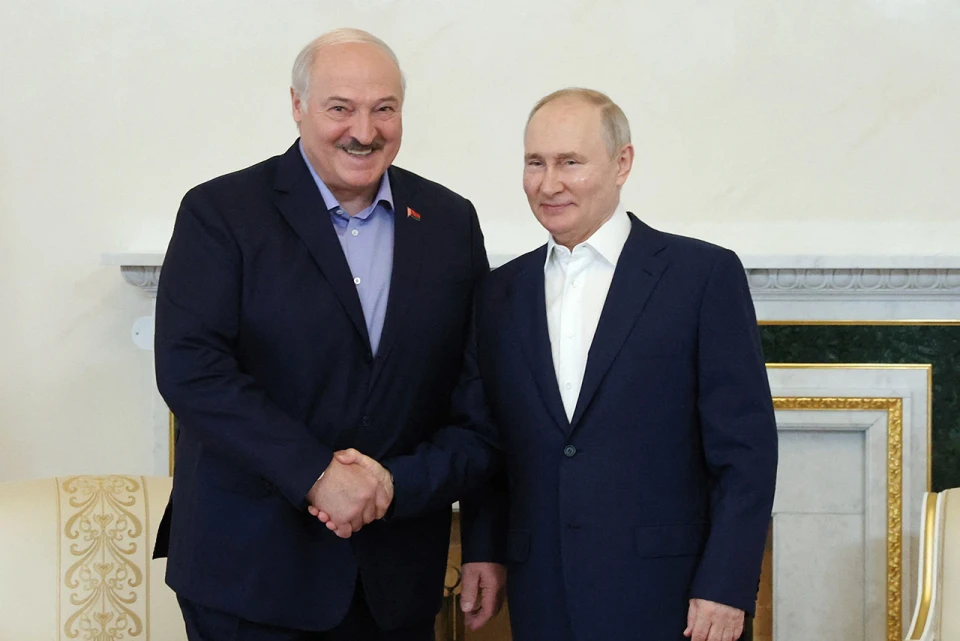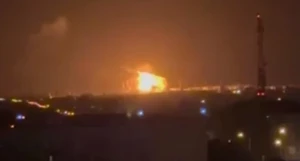
Have Western sanctions against Belarus achieved their goal?
Despite European and American sanctions, the Belarusian economy is outpacing expectations. In 10 months, GDP growth has already met the Belarusian government's full-year target for 2023 at 3.8%, according to the state statistical agency
Approximately half of Belarus' economic sectors are currently under Western sanctions, as estimated by Belarusian Ambassador to Russia, Dmitry Krutoy. Despite this, Belarus successfully mitigated their impact. Consequently, after a challenging 2022 with a 4.7% economic decline, the current year shows notable success in terms of GDP growth.
Dron Media, a publication funded by the US and the EU, delves into the sanctions – when and why they were imposed, their effectiveness, and Russia's role in aiding the Belarusian economy. Espreso is presenting the translation of the article with the editors' permission.
2020 Election
Tensions between Belarus and the West escalated following the 2020 presidential elections. The EU responded to the forceful suppression of protests and crackdown on government opponents by imposing three sets of sanctions in the fall of 2020.
Sanctions targeted individuals, groups involved in violence, and those supporting or sponsoring President Lukashenko's regime. Major companies, including CJSC Beltech Export (involved in international arms sales) and MZKT (Minsk Wheel Tractor Plant (MWTP), a military equipment manufacturer), were among those facing restrictions.
Additionally, the European Bank for Reconstruction and Development (EBRD) halted new project implementation and financing in the state sector in Belarus.
Ryanair flight landing and sectoral sanctions
In early June 2021, Belarus captured global attention once again due to the forced landing of an Irish Ryanair plane in Minsk and the subsequent arrest of opposition figure Roman Protasevich. Responding to this incident, the West imposed fresh restrictions on Belarusian air carriers, prohibiting them from operating in EU airspace and using EU country airports.
By June 21, the EU had expanded its sanctions list, adding eight companies, including MAZ, Belaz, CJSC Novaya Neftenaya Kompaniya (New Oil Company), and Belaeronavigatsia.
On June 24, the Western sanctions escalated further as the EU implemented sectoral sanctions for the first time. Belarus faced restrictions on exporting petroleum products (excluding gasoline and diesel) and potash fertilizers to the European market. Additionally, access to the European capital market was limited. Simultaneously, a ban was enforced on supplying dual-use products, technologies, equipment, and communication interception software to the country.
Migration crisis
In late 2021, the EU imposed additional sanctions due to the migration crisis along the Belarus-EU border. Thousands of migrants from the Middle East and African nations attempted to reach Poland and the Baltic countries.

The border between Latvia and Belarus. Photo: Reuters
Once again, Belavia faced restrictions, losing the ability to lease aircraft in the EU. Sanctions also impacted petrochemical enterprises like Grodno Azot, Grodno Khimvolokno, Belorusneft, and the tire manufacturer Belshina.
The United States separately imposed sanctions, notably affecting Belaruskali, one of the major producers of potash fertilizers.
War in Ukraine
After February 24, 2022, a new phase of tension between the West and Belarus unfolded. The EU condemned Belarus's involvement in the war against Ukraine, leading to increased sanctions from various nations, including Ukraine, the USA, Canada, and the UK.
Export restrictions targeted new sectors like woodworking and the cement industry, along with various goods and technologies relevant to Belarus's military, technological, and defense development. Simultaneously, limitations were imposed on Belarus for receiving advanced products such as microelectronics, aviation items, and weapons.
Western sanctions, with a "military" focus, also impacted goods suppliers. The EU banned Belarusian cargo carriers, particularly transit through its territory, and Lithuania restricted rail transit.
An innovative move involved sanctions on the financial sector. Major state banks were disconnected from SWIFT, and both the National Bank and private banks, mainly with Russian capital, had to curtail financial transactions with foreign banks.
Sanctions' impact on Belarus
In November of last year, Economy Minister Aleksandr Chervyakov estimated Belarus' direct losses from halted goods supplies to Europe at $6 billion. By June 2023, factoring in the trade blockade with Ukraine, Ambassador Krutoy assessed the losses to have surged to $10.5 billion.
The trade embargo hit industries crucial for foreign currency, particularly oil refining.
BEROC's research shows that in 2021, Belarusian refineries exported over $4 billion worth of oil products. However, by the close of 2022, exports plummeted to $1 billion.
Direct deliveries of petroleum products to the EU market dwindled from $1 billion to $100 million. The most significant blow was the loss of the lucrative Ukrainian market, where pre-war exports in 2021 reached $2.3-2.8 billion.
To some extent, Belarus can offset these losses through reduced prices for Russian oil, purchased below global rates. BEROC estimates suggest savings of around $1.7 billion in 2022, and this year's savings could potentially reach $2.7 billion, constituting 3.6% of GDP.

Belarusian military. Photo: 24tv.ua
Potash industry
Before sanctions were imposed, the Belarusian potash company held a 20% share in the global export of potash fertilizers. In 2020, Belarus successfully sold around 10 million tons of these fertilizers internationally, earning over $2 billion. Projections from the BEROC research center anticipated a growth in exports to nearly $3 billion in 2021, attributed to a surge in global prices. However, the actual results for the past year showed a significant decline, with exports plummeting by almost 40% to $1.8 billion.
First Deputy Prime Minister Nikolay Snopkov reported that due to sanctions, Belarus experienced a loss of over half its 2020 exports, totaling 5.5 million tons. Consequently, Belarus's share in the global potash fertilizer market shrank to 9%. Adding to the challenges, logistics costs surged by 2-5 times as Lithuania discontinued the transit of fertilizers through the Klaipėda port.
Woodworking industry
In 2020, Belarus secured the 9th spot among the leading wood and wood product suppliers to EU nations. By the end of 2021, total exports generated $2.3 billion, with over 60% directed to the EU, primarily to Poland, Lithuania, Latvia, Germany, and the Netherlands. In March 2022, the EU imposed a ban on certain Belarusian woodworking items, resulting in a more than 30-fold decline in wood exports to the EU, as per Eurostat.
Despite the sanctions, it appears Belarusian suppliers may have devised strategies to bypass restrictions. Independent Belarusian journalists report that Belarusian lumber producers are facilitating shipments to the EU through Kyrgyzstan and Kazakhstan, presenting the goods as originating from these countries.
IT industry
The IT industry was indirectly impacted by sanctions, affecting it negatively.
Due to regional issues, many customers started avoiding collaboration with Belarusian companies and experts. Sanctions on the banking sector made it challenging for Belarusian offices to access company resources. Overall, the business risks in Belarus escalated, leading over 100 local and foreign companies to exit the country. Consequently, the economy missed out on $0.5 billion in exports from the High Technologies Park, established by the authorities to attract IT firms, just last year.
Considering the tax losses caused by the departure of IT professionals, this figure could now be around $1 billion.
Civil aviation
In November 2021, Artem Sikorsky, the head of Belarus's aviation department, mentioned that European sanctions are costing civil aviation around $10 million monthly.
Belavia had to return half of its aircraft fleet due to sanctions, resulting in the airline currently operating 13 planes (Boeing and Embraer) with an average age of 11.2 years.

Photo: vgr.by
Initially, Belavia planned to expand its fleet exclusively with Western-made aircraft, such as American Boeing and Brazilian Embraer, before Western sanctions were enforced. However, these plans had to be revised. The airline is now looking to acquire Russian-made aircraft, expected to be in service between 2024 and 2026. Additionally, the U.S. ban on spare parts for American aircraft to Belarus led to a nearly threefold increase in the airline's Boeing maintenance costs.
The EU flight ban also impacted passenger traffic. In 2021, the company transported nearly 2 million passengers, whereas last year, it only managed to transport 1.6 million passengers.
Belarus’ response
On October 19, Economy Minister Aleksandr Chervyakov stated that Belarus successfully offset the losses incurred due to Western sanctions.
Close ties with Russia and increased exports to the Russian market, especially for goods facing sanctions, played a significant role in mitigating the impact of sanctions. Trade between Belarus and Russia reached a record $50 billion last year, marking a 12% increase. This year, Ambassador Dmitry Krutoy anticipates that mutual trade could rise to $55 billion.
In September 2022, Belarus and Russia inked an intergovernmental agreement facilitating the transit of Belarusian goods through Russian territory. This move led to a more than twofold increase in the export of Belarusian goods through Russia, utilizing both overland routes and ports.
Belarus also got financial aid from Russia. Last autumn, Russia and Belarus inked a deal for a 105 billion Russian ruble loan (around 1.5 billion dollars) to fund Belarusian import substitution projects. Moreover, Belarus secured a 5-6-year delay in repaying Russian state loans and a deferment for a loan linked to the construction of a nuclear power plant.
Belarus independently implemented financial measures. In the spring of last year, Alexander Lukashenko's decree allowed companies and banks to meet their foreign debt obligations to nations imposing sanctions in Belarusian rubles. During the summer, Belarus declared its intent to settle payments for Eurobonds in Belarusian rubles instead of foreign currency.

Alexander Lukashenko and Vladimir Putin.
Photo: Reuters
"The economic risks loom large"
Anastasia Luzgina, an economist at the BEROC research center, outlined to Dron the reasons behind Belarus's economic growth and detailed the actual impact of sanctions:
"Don't anticipate a complete economic blockade from sanctions. These measures are imposed by individual states and don't encompass the entire global community. Belarus had opportunities to reshape its economy: seeking new partners and establishing fresh logistical connections."
Sanctions against Belarus were approached cautiously, gaining momentum after the country was labeled a co-aggressor. If sanctions had been adopted and enacted more swiftly, the economic shock might have been more pronounced. Another contributing factor is the increasing support from Russia in recent years.
Nevertheless, the economist contends that deeming the sanctions ineffective would be premature. Last year witnessed a substantial economic downturn of 4.7%. This year, GDP has rebounded by 3.8%, but it falls short of compensating for the previous year's losses. It's important to note that the GDP increase stems from a low base established in the preceding year.
"The growth is tied to the state's active economic stimulation through a lenient economic policy," she noted. "Lowering the refinancing rate has made loans more affordable, fostering growth in both consumer and investment lending. However, such a policy may lead to long-term economic overheating and inflation."
While the state still regulates prices, Luzgina suggested a potentially softer approach. "Heavy price suppression can lead to companies losing money or shortages of certain goods due to unprofitability. This may impact production or supply costs."
"With Belarus now rerouting goods through Russia, likely at a discount, and facing increased logistics costs, there's a heightened dependence on the Russian Federation. The Belarusian economy and the Belarusian ruble are influenced by the dynamics of the Russian ruble. Given Russia's sanctions and wartime status, there are significant risks for both the Belarusian currency and the economy," she explained.
- News














































